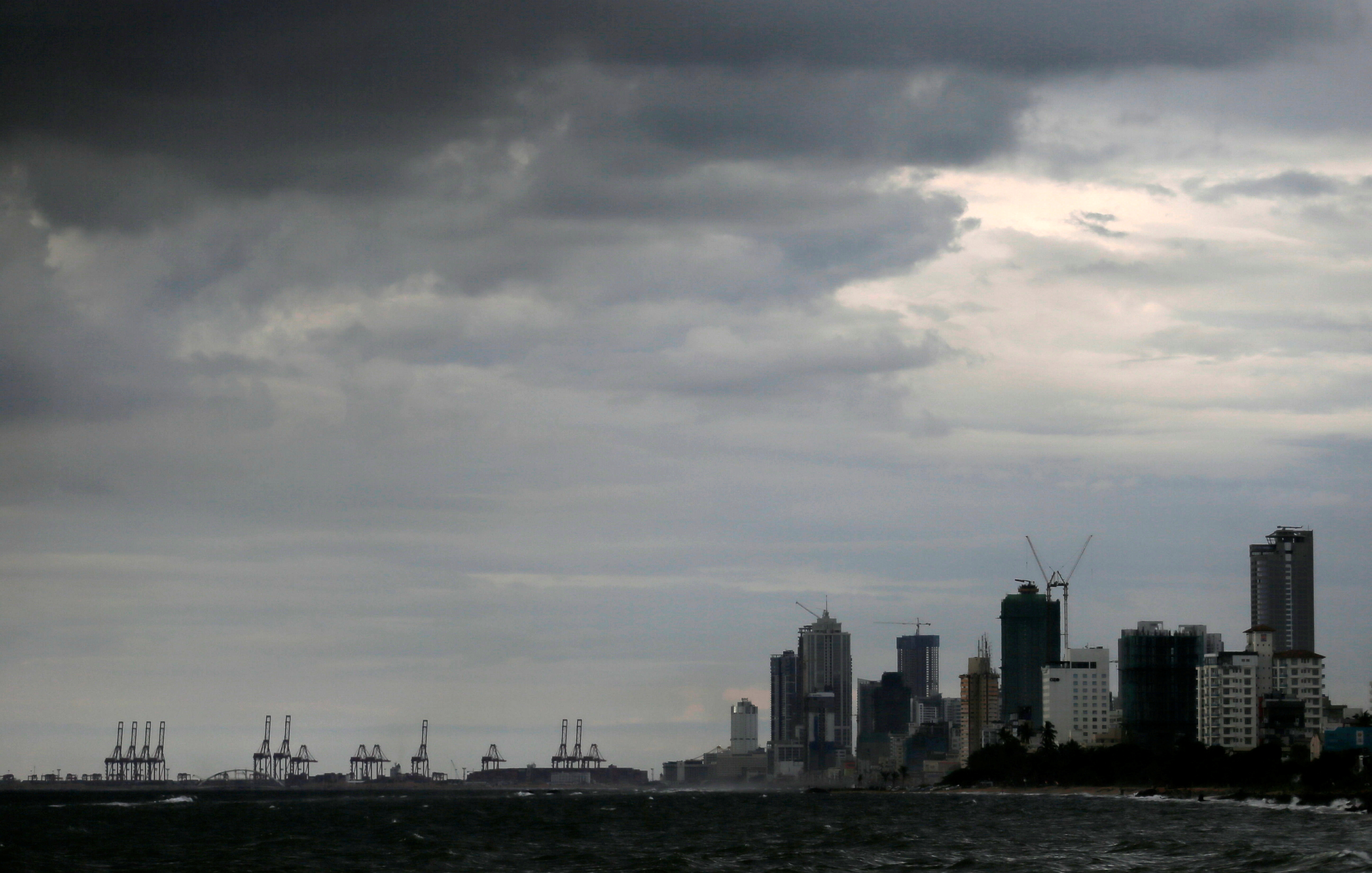
A general view of the main business district as rain clouds gather above in Colombo, Sri Lanka, November 17, 2020. REUTERS/Dinuka Liyanawatte/File photo Acquire Licensing Rights
MARRAKECH, Oct 11 (Reuters) – The International Monetary Fund had not been informed about any specific agreements regarding Sri Lankan debt talks, a fund official said on Wednesday, after China announced it had come to an agreement with the country.
Peter Breuer told Reuters on the sidelines of the World Bank IMF annual meetings in Marrakech that talks between Sri Lanka and all its creditors were ongoing.
“We will need to assess the entire package of agreements in its totality to assess consistency with IMF debt targets,” Breuer said.
Sri Lanka’s finance ministry said in a statement that the Export-Import Bank of China had extended an initial debt restructuring deal. Finance Minister Ranjith Siyambalapitiya said the move “will benefit the country’s economy and all aspects linked with it”.
Sri Lanka owed Exim $4.1 billion, or 11% of it foreign currency debt, at the end of 2022.
Sri Lanka is also in talks over a $2.9 billion IMF bailout. But in September the fund declined to release a second tranche of around $330 million after it failed to reach a staff-level agreement over concerns of a possible government revenue shortfall.
Japan, India and France announced in April a common platform for talks among bilateral creditors to coordinate restructuring of Sri Lanka’s debt, a move they hope would serve as a model for solving the debt woes of middle-income economies.
As a middle-income country, Sri Lanka is not part of the G20 debt initiative known as the Common Framework, so talks with official creditors from China are conducted separately.
Jamie Fallon, economist with Tellimer Research, called the Exim agreement a “surprise deal”.
“The development could pave the way for an MoU with commercial and bilateral creditors, plus IMF board approval on the next round of (extended fund facility) funding (if other points of contention such as revenue shortfalls can be overcome),” he wrote in a note.
Reporting By Jorgelina do Rosario, writing by Libby George, editing by Karin Strohecker, John Stonestreet and Nick Macfie
Our Standards: The Thomson Reuters Trust Principles.

